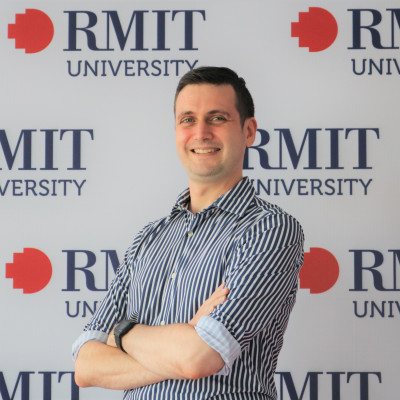Sessions / Location Name: Strategies and Attitudes - Sunday
Physical Location
Location: 602
How ER and Explicit Vocabulary Teaching Help University Students Writing #4411
This study aimed to improve writing skills in students, including increased vocabulary acquisition in university writing classes by incorporating both Extensive Reading and Explicit Vocabulary Teaching. The class used for this research had 29 students and ran for one semester. Compared with the 75% of the students who completed their task of reading 20 Extensive Reading texts, the 25% of students who could not complete them showed lower writing accuracy in writing tasks. 37% of students out of the 75% of students also showed an increase in reading speed of on average of 20 seconds over one minute on the post-test. Moreover, Explicit Vocabulary Teaching of both synonyms and derivatives showed an increase in post-test scores of three times higher compared to the pre-test. These findings can hopefully contribute to providing a valuable baseline for writing teachers.
Happy Reading Begins Not Just with Logic, but Magic #4161
For the past ten years, I have worked as a reading mentor, guiding Korean elementary students in English reading. I’ve seen that children who enjoy coaching and feel happy coming to the reading center are more likely to develop lasting reading habits. This led me to an important insight: before building language skills, we must first build a child’s positive attitude toward English. This presentation shares the “magic” of focusing on strengths. When we recognize and support a child’s strengths, we grow their confidence and love for English. This strength-based approach begins with the teacher. Educators who value their own strengths can better inspire students. Lastly, I will offer practical coaching strategies to help students build a positive bond with English and with themselves. With the right approach, reading becomes a joyful and powerful experience—making Happy Reading a reality.
Extensive or Extrinsic Reading: A Japanese University Case Study #4123
How ‘extensive’ do learners need to read in order to improve their overall English language proficiency? This case study offers valuable data and analysis to shed light on this and other pertinent questions. A sample of 189 university-level students read on average around 200,000 words for 28 hours over an eight-month period, and their English language proficiency was measured via the TOEIC-IP test before and after the reading intervention. Results show a statistically significant average gain of 24 TOEIC points, however, as a close examination of the data in this presentation will reveal, the 200,000 word target is problematic and the assigning of extensive reading as a part of a for-credit university course fraught with challenges. Drawing on this insightful data, this presentation highlights best practices and principles for cultivating sound and sustained extensive reading habits in university-level learners, and avoiding imposing on them an alternative form of ‘extrinsic’ reading.
Developing Social-Emotional Learning: Weekly Picturebook Read-Alouds #4056
"The Happy Reading Project" is a specialized curriculum developed for English language immersion kindergartens in Nagoya, Japan, with the objective of fostering essential social-emotional competencies through weekly interactive picturebook read-aloud sessions. As Ghosn (2013) asserts, “Children’s literature not only enhances language learning…but it can also nurture moral reasoning skills, emotional intelligence, and empathy” (p. 39). Building on this premise, the curriculum incorporates a carefully curated selection of almost 30 picturebooks, spanning years K1 to K3, with an emphasis on first cultivating self-awareness before progressing to social awareness and balance. Supplementary lesson plans offer kindergarten teachers structured guidance on pre-, during, and post-reading activities, including art, music, games, and movement-based exercises. This presentation will provide detailed teacher feedback on the project's impact on both young learners and educators, providing insights into its initial successes and the ongoing challenges observed during its first implementation across kindergarten classrooms in the 2024/25 academic year.
I Want to Read: My Journey of Learning Vietnamese by Reading for Pleasure. #4243
Students often see reading course books and test papers as a chore, lacking enthusiasm. Having developed a love for extensive reading by learning Vietnamese through Manga and novels, I have gained valuable insights into the process. This workshop begins with a 30-minute interactive presentation as attendees discover my own extensive reading journey through hands-on activities. A 60-minute practical session follows, where participants will learn how to help students select engaging readers, like Manga, based on the students’ interests. Then, work in groups to design follow-up activities using online tools and create questions to spark students’ curiosity for further reading. Participants will then connect these activities to their own teaching contexts and curriculums. 15-minute group discussions/peer feedback with questions concludes the workshop. Participants will learn how to uncover student interests, construct engaging questions that instill a genuine love of reading back into their classrooms, and integrating these into their curriculums.
Windows Into Successful Graded Reading: Interviews With Engaged Students #4090
Many educators include graded reading in their courses based on research evidence outlining the potential to improve learner motivation (McLean & Poulshock, 2018) and develop language learning (Grabe & Stoller, 2019; Nation & Waring, 2019). Winning over reluctant readers poses a challenge. However, insights into what caught the interest of readers putting in the most time and effort in a reading project have merit. This session shares student-approved, case study statements covering past experiences, recent success with graded reading and MReader quizzes, and future reading. While not all learners see the light, better understanding the lived experience of these readers provides a window into the potential to engage other learners by process, texts, and support. The two-fold aim is to inform teachers for their practice but also to reward these students with an opportunity to share their reflections in live, recorded, and transcribed interviews in English at an academic conference.





